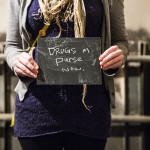 I was fortunate to host one of the more meaningful Halloween events of my life this year. Building on the work I have been doing in one of our state youth correctional facilities over the past couple of years, I approached the administration with the idea of holding a Halloween party for the incarcerated fathers and their young children. The fathers, themselves, are in their late teens and early twenties, so their children are all very young and at the age when Halloween is a major holiday.
I was fortunate to host one of the more meaningful Halloween events of my life this year. Building on the work I have been doing in one of our state youth correctional facilities over the past couple of years, I approached the administration with the idea of holding a Halloween party for the incarcerated fathers and their young children. The fathers, themselves, are in their late teens and early twenties, so their children are all very young and at the age when Halloween is a major holiday.
We arranged to have the event on October 30th, so that it was an additional celebration and did not take the kids away from their own neighborhood celebration of Halloween. Approximately seven young fathers participated, and family members brought their young children in their Halloween costumes into the facility to decorate pumpkins with their dads, decorate and eat cookies together, and to try to catch donuts and apples on strings (a more hygienic version of bobbing for apples). The culminating event was when the kids and their dads were able to trick or treat down the hallways of the institution’s school. I had eight fabulous students from Oregon State University helping to run the event – the OSU volunteers were able to each go into a classroom and greet the little trick-or-treaters with kindness and candy. After the little kids went home, we invited the full population of the facility to join us in the gym for pumpkin decorating, lively games, cookies, and candy. I think it’s safe to say that the OSU volunteers and the young men in the facility all had a great time.
In the grand scheme of things, this event was a little thing that the youth correctional facility made possible. All we had to do was suggest the idea; they then allowed us to make the plans, and then the administrators made it happen. In the past 20 years (at least), they have never had an event like this. For the kids and dads who participated, this was a big deal. The dads got to be involved in an important childhood ritual, and they were able to make some unique memories with their kids. I got to play photographer for much of the event, and I took some great family photos that both the kids and dads will be able to look back upon and enjoy for many years to come.
In my research and teaching, I think a lot about at-risk youth and children of incarcerated parents. Small events like this one seem to me to be a small but important step to show that the community cares and wants what is best for these children. It was a Halloween well spent.


